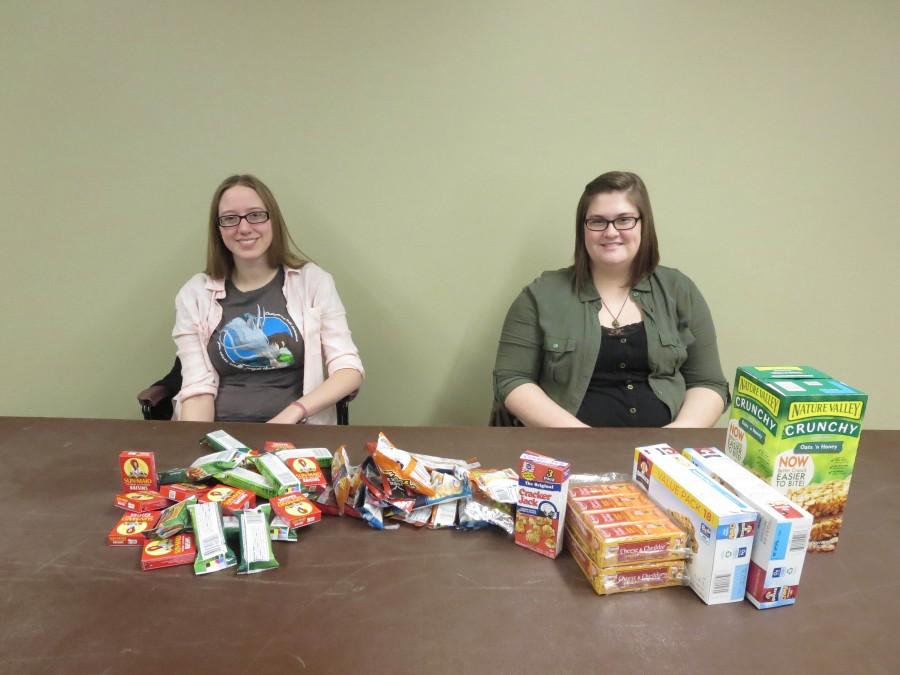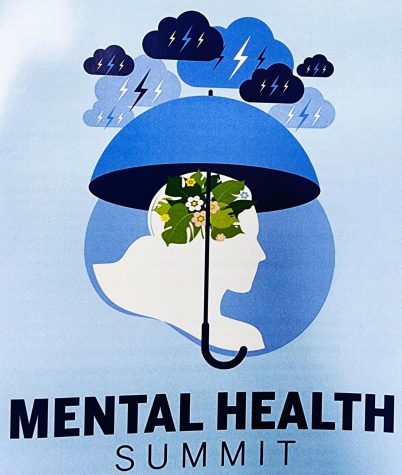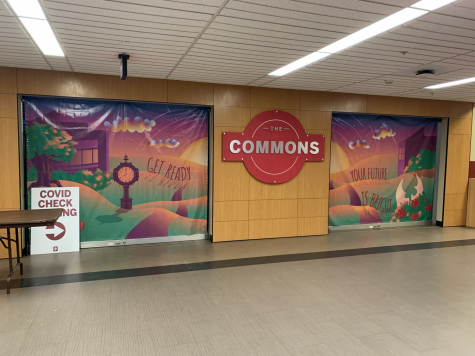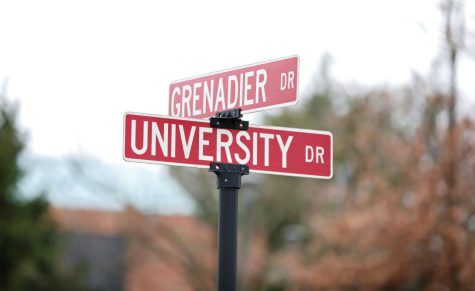Sociology Club collects snacks for the homeless
Aimee Kelmel, sociology senior, and Aubrey Garman, psychology and sociology senior, collect individually wrapped snacks Thursday, Jan. 14 in The Commons for the Sociology Club. The snacks will be added to care packages that will be distributed to the homeless during the Point in Time count on Wednesday, Jan. 27.
January 19, 2016
Aimee Kelmel, sociology senior, had an experience that showed her the importance of supporting organizations that help those who experience homelessness.
In 2013, her home was destroyed by a fire. Everything was incinerated except for her video games and a few clothes, but her family and animals made it out safely. Kelmel and her family had to rely on the Red Cross for help until their home was rebuilt the following year.
“Things are different when you don’t really have a place to go, and you have to rely on others,” Kelmel said.
That experience, Kelmel said, makes the work the Sociology Club has been doing to help the homeless even more meaningful.
The Sociology Club is getting involved in a nationwide annual event known as the Point in Time count, which is a census of the homeless that collects demographic information, according to Aubrey Garman, sociology and psychology senior. Garman, the student research assistant and president of the Sociology Club, said Indiana’s PIT count will occur Wednesday, Jan. 27.
Garman said agencies that serve the homeless receive funding for the PIT count, but she learned that due to recent changes in federal guidelines, the agencies can no longer use the funding to purchase food.
As a result, Garman pitched the idea of collecting donations on campus. Kelmel, Garman and other Sociology Club members collected individually-wrapped snack items for the homeless on Wednesday, Jan. 13 and Thursday, Jan. 14 in The Commons from 10 a.m. to 1:30 p.m. The snack items will go into care packages that will be distributed during the PIT count.
“Something as simple as a granola bar, could hold these people over till their next meal,” Garman said.
Garman said the collection was a success. The Sociology Club received 315 individually wrapped snack food items.
Garman said she encourages all students to fight against the stereotype of a lazy and apathetic generation, and she said she urges everyone to educate themselves on current real issues and to get involved somehow.
“The world needs more people who care,” Garman said.
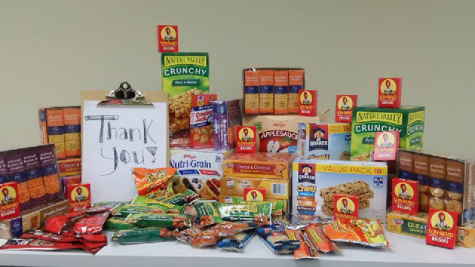
In addition to the the Sociology Club, the Applied Research and Education Center is involved with the PIT count, according to Melissa Fry, assistant professor of sociology and director of the center. Fry said the Department of Housing and Urban Development has appointed the center to coordinate the count in this region for the second year.
“Part of what we do is put together little incentive kits for those who complete the survey, “ Fry said. “Which includes new socks, some hand warmers, and we may be distributing some blankets this year and we also include some food items.”
Fry said the changes in federal law that prohibit the limited funding being used for food are unfortunate, and she hopes the Applied Research and Education Center and the Sociology Club are able to make up some of that difference.
Kelmel said that the collection of the individually wrapped snacks not only benefits the homeless but also benefits those who collected and donated.
“It feels good to give,” Kelmel said.

